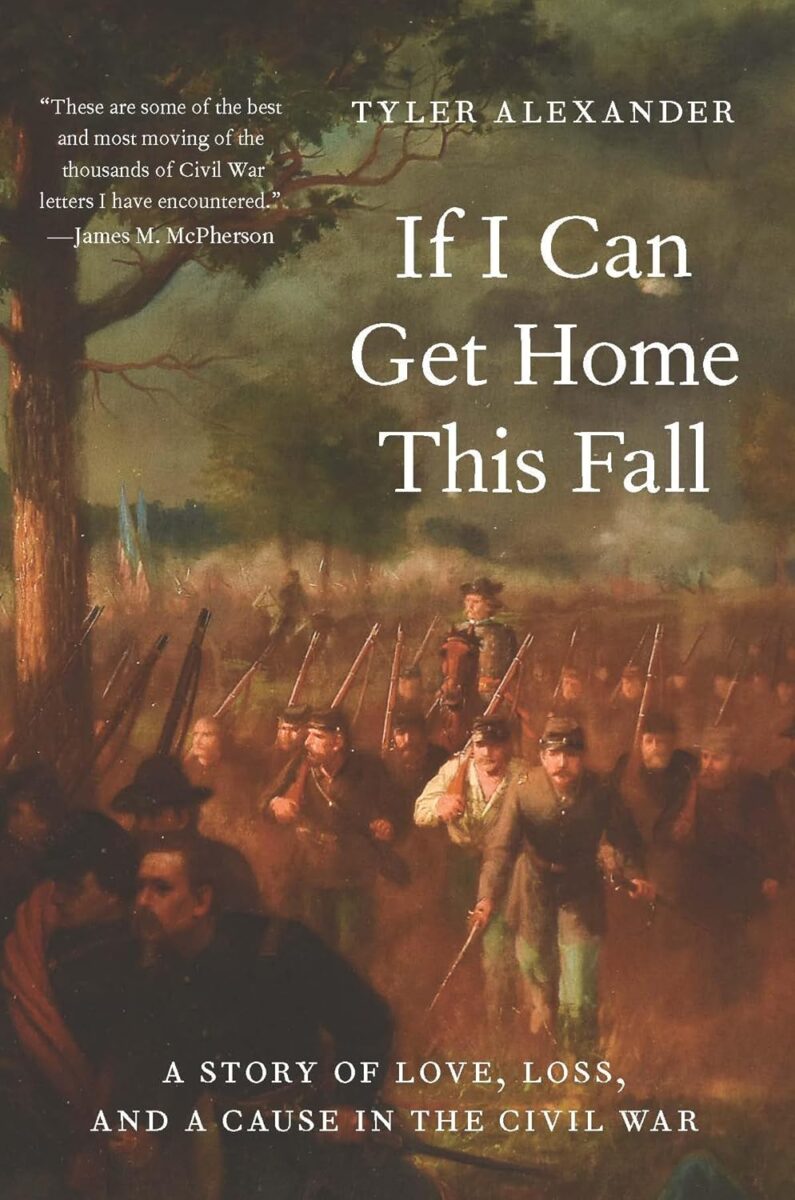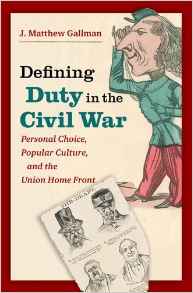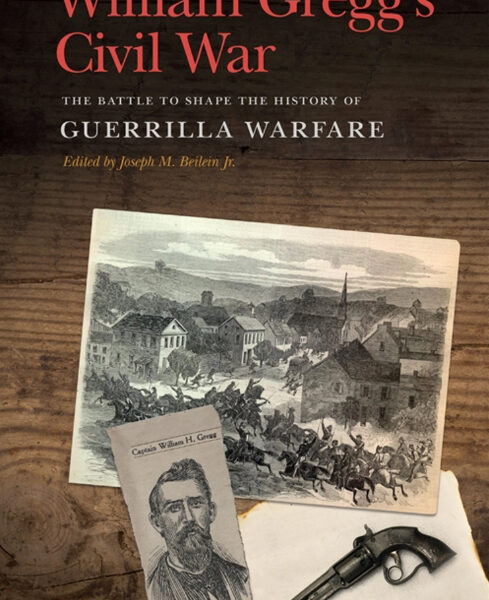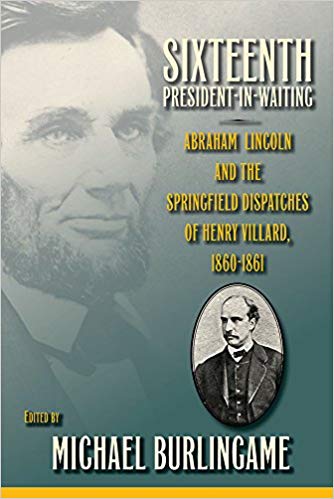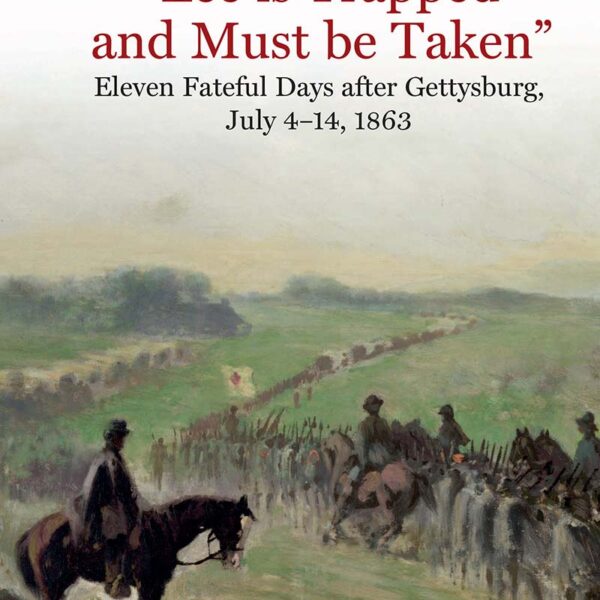Dan Mason was an idealistic young man who joined the 6th Vermont Infantry as a corporal and eventually obtained the rank of sergeant. His commitment to patriotic service involved two clear goals: defending republican government and ending slavery. Shortly before the war, he had begun a courtship with Harriet Clark, though they would not marry until nearly the end of the war. Mason was a faithful correspondent and so was she, but unfortunately Harriet’s letters were burned. She worried that other soldiers might read her letters, and even upbraided Dan for showing her picture to his comrades.
Dan wrote about the usual soldier topics such as picket duty, food, health, and fraternization with the enemy; he assumed that Harriet would get the necessary war news from the newspapers. Early on, he was convinced that the war would strike a death blow to slavery; at the same time, he thought that people should be patient with General George B. McClellan. His first major battle was Antietam, which he termed “grand, awful, terrible, sublime” as the dead “lay in heaps for a long distance” (59). His regiment was lightly engaged at Fredericksburg, but his letters about winter quarters and the infamous Mud March are nicely descriptive. He offered a good account of the 6th Vermont’s role at Chancellorsville the following spring.
As the war continued, Dan wrote more often about conscription, deaths, wounds, and prisoners. Yet he never seemed to despair of the Union cause and deemed northern Copperheads worse than southern traitors. In November 1863, Dan gave Harriet an eloquent description of patriotic dedication: “when one feels he is battling for the right when he thinks of the principles he is supporting, when he thinks that he is knocking out the rotten treacherous walls of slavery on which our government has tattered & reeled, threatening to engulf us from the commencement and substituting in place of the granite walls of freedom, when he thinks that his government is passing through the fiery ordeal, when he thinks that the eyes of all civilized nations are looking on speculating whether a Republican government can sustain itself or not—then it is that the soldier’s heart swells with emotions of pride & patriotism & trusting in the God of battles, he nerves himself to the conflict. Under such feelings the roar of cannon & the rattle of musketry & and the din of war become grand & sublime” (115).
All the while, “love” was a major theme of the correspondence. Both Dan and Harriet grew impatient for their wedding, though he thought it best not to be a married man in the army with a family at home “leaning on me for support” (72). After a recruiting trip home, he found it hard to return. Yet once back, he claimed to be “enjoying camp life first rate” because “there is something about a military life that civil life cannot give. There is something wild & exciting that makes it bewitching” (120). A short time later, during a furlough, Dan and Harriet became officially engaged.
After reenlisting, Dan obtained a captain’s commission in the 19th United States Colored Troops—an assignment that he embraced both for its mission and for the increased pay. During the Overland Campaign, Dan and his men guarded wagons and stood on picket duty. But at Petersburg, the regiment suffered over one hundred casualties in the famous mine explosion. A ball ripped through Dan’s shirt sleeve, and an exploding mortar shell covered him in dirt. In a newspaper letter, he defended his men’s performance, though he thought “it will perhaps take longer to discipline and develop their fighting qualities than white men” (163). Dan considered resigning, but his sense of duty remained intact even as his desire for marriage intensified. Despite having early in the war signed a temperance pledge, he admitted to having an occasional drink and playing cards. He denied ever having “improper intercourse” with a woman and added that few of his comrades could say the same.
As the war was winding down, Dan’s urge to leave the army grew. In January 1865, however, his resignation was rejected, though during a leave of absence in March, Dan and Harriet were finally wed. As the war came to an end, however, Captain Mason and his men were not mustered out; instead, they were sent to Texas to keep an eye on Mexican affairs. There, Dan, who had never been sick or wounded during four years of fighting, died of dysentery in a post hospital. His body was returned to Glover, Vermont, for a funeral. To compound the anguish, at some point Harriet had suffered a miscarriage. She received a widow’s pension, remarried in 1876, and lived until November 1924.
Tyler Alexander has not edited Mason’s letters in a conventional sense. Rather than annotating the documents, he has provided extensive context and commentary, well supplemented by statements from other soldiers and material from the Orleans Independent Standard, published in Irasburgh, Vermont. The result is highly readable and moving account of love and war. Scholars will find useful material, but the book is equally good for general readers, who will both learn from and enjoy the story of a dedicated soldier and the great love of his life.
George Rable is the author of many books on the Civil War era, including the Lincoln Prize winning Fredericksburg! Fredericksburg!
